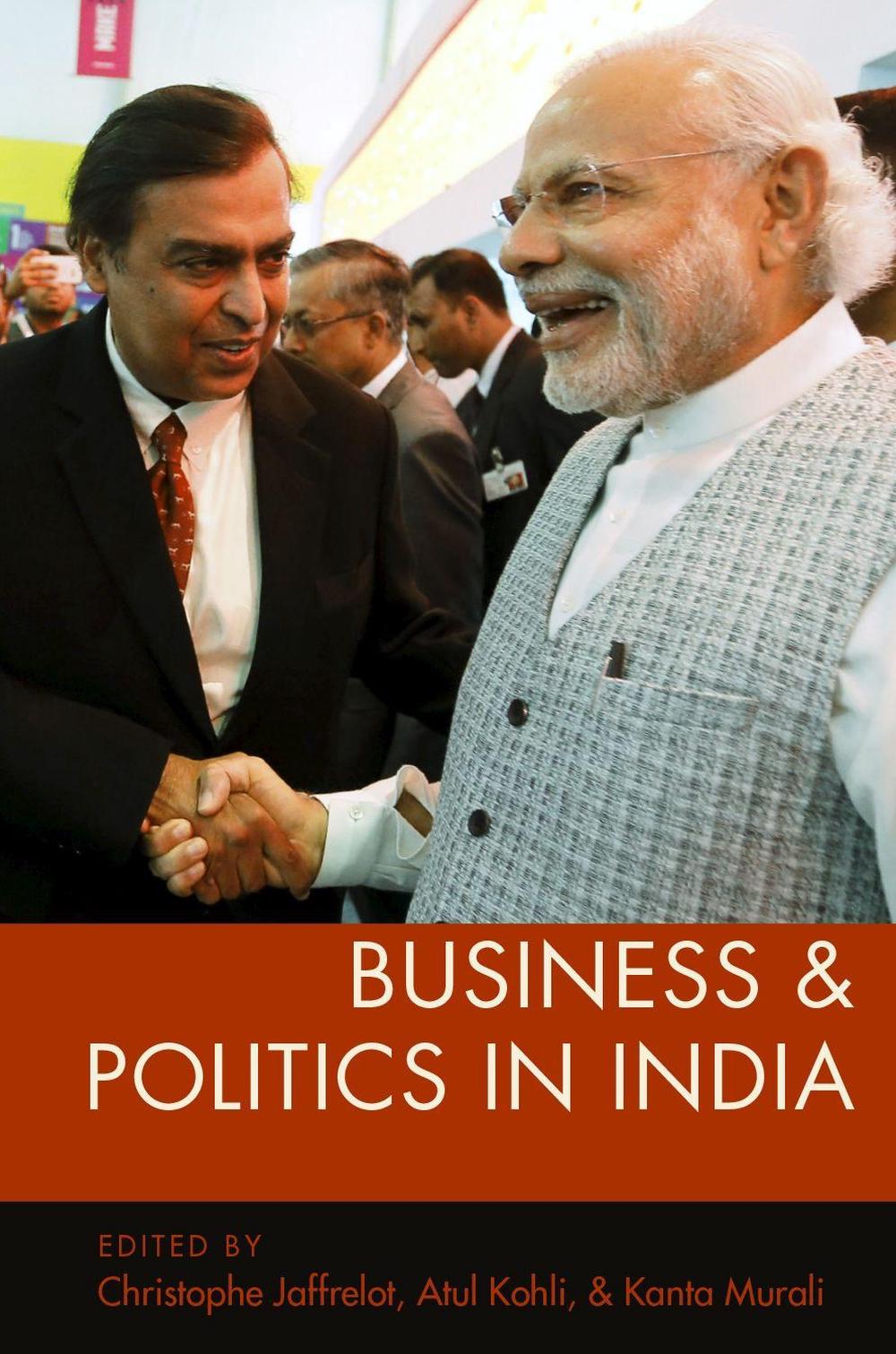
When you click on links to various merchants on this site and make a purchase, this can result in this site earning a commission. Affiliate programs and affiliations include, but are not limited to, the eBay Partner Network.
Business and Politics in India by Christophe Jaffrelot (English) Paperback Book

- Item No : 236135739751
- Condition : Brand New
- Brand : No brand Info
- Seller : the_nile_uk_store
- Current Bid : US $52.28
-
* Item Description
-
The Nile on eBay

Business and Politics in India
by Christophe Jaffrelot, Atul Kohli, Kanta Murali
Over the last few decades, politics in India has moved steadily in a pro-business direction. This volume analyzes the growing power of business groups in India and the consequences of this process on key issue areas. The questions and concerns analyzed in this volume have both normative and scholarly significance.
FORMAT
PaperbackLANGUAGE
EnglishCONDITION
Brand New
Publisher Description
Over the last few decades, politics in India has moved steadily in a pro-business direction. This shift has important implications for both government and citizens. In Business and Politics in India, leading scholars of Indian politics have gathered to offer an analytical synthesis of this vast topic. Collectively, they cover the many strategies that businesses have used to exert their newfound power in recent times and organize the book around a few central concerns. They first analyze the nature of business power and how it shapes political change in India. Second, they look at the consequences of business' growing power on some important issue areas-labor, land, urban governance, and the media. Finally, they take account of regional variation and analyze state-business relations. This definitive account offers significant insights into how and why corporations have increased their power in contemporary Indian politics.
Table of Contents
1. Introduction Christophe Jaffrelot, Atul Kohli and Kanta Murali Section 1: Power of Business in Contemporary India 2. Economic Liberalization and the Structural Power of Business in India Kanta Murali 3. India's New Porous State: Blurred Boundaries and the Evolving Business-State Relationship Aseema Sinha Section 2: Business Power Across Issue Areas 4. The Politics of India's Reformed Labor Model Rina Agarwala 5. Business Interests, the State, and the Politics of Land Policy in India Rob Jenkins 6. Cabal City: India's Urban Regimes and Accumulation without Development Patrick Heller, Partha Mukhopadhyay and Michael Walton 7. Media in Contemporary India: Journalism Transformed into a Commodity C. Rammanohar Reddy Section 3: Regional Experiences 8. Business-friendly Gujarat in 2000s: The Implications of a New Political Economy Christophe Jaffrelot 9. Business and Politics: The Tamil Nadu Puzzle John Harriss and Andrew Wyatt 10. Business and State in Odisha's Extractive Economy Sunila Kale 11. Conclusion Christophe Jaffrelot, Atul Kohli and Kanta Murali
Promotional
This book analyzes the growing power of business groups in India and the consequences of this process on key issue areas.
Long Description
Over the last few decades, politics in India has moved steadily in a pro-business direction. This shift has important implications for both government and citizens. In Business and Politics in India, leading scholars of Indian politics have gathered to offer an analytical synthesis of this vast topic. Collectively, they cover the many strategies that businesses have used to exert their newfound power in recent times and organize the book around a few centralconcerns. They first analyze the nature of business power and how it shapes political change in India. Second, they look at the consequences of business' growing power on some important issue areas-labor, land, urban governance, and the media. Finally, they take account of regional variation and analyzestate-business relations. This definitive account offers significant insights into how and why corporations have increased their power in contemporary Indian politics.
Details
ISBN0190912472Pages 336Publisher Oxford University Press IncSeries Modern South AsiaYear 2019ISBN-10 0190912472ISBN-13 9780190912475Publication Date 2019-01-31Language EnglishFormat PaperbackDEWEY 338.954UK Release Date 2019-01-31Imprint Oxford University Press IncPlace of Publication New YorkCountry of Publication United StatesAU Release Date 2019-01-31NZ Release Date 2019-01-31US Release Date 2019-01-31Author Kanta MuraliAlternative 9780190912468Edited by Kanta MuraliAudience General


















